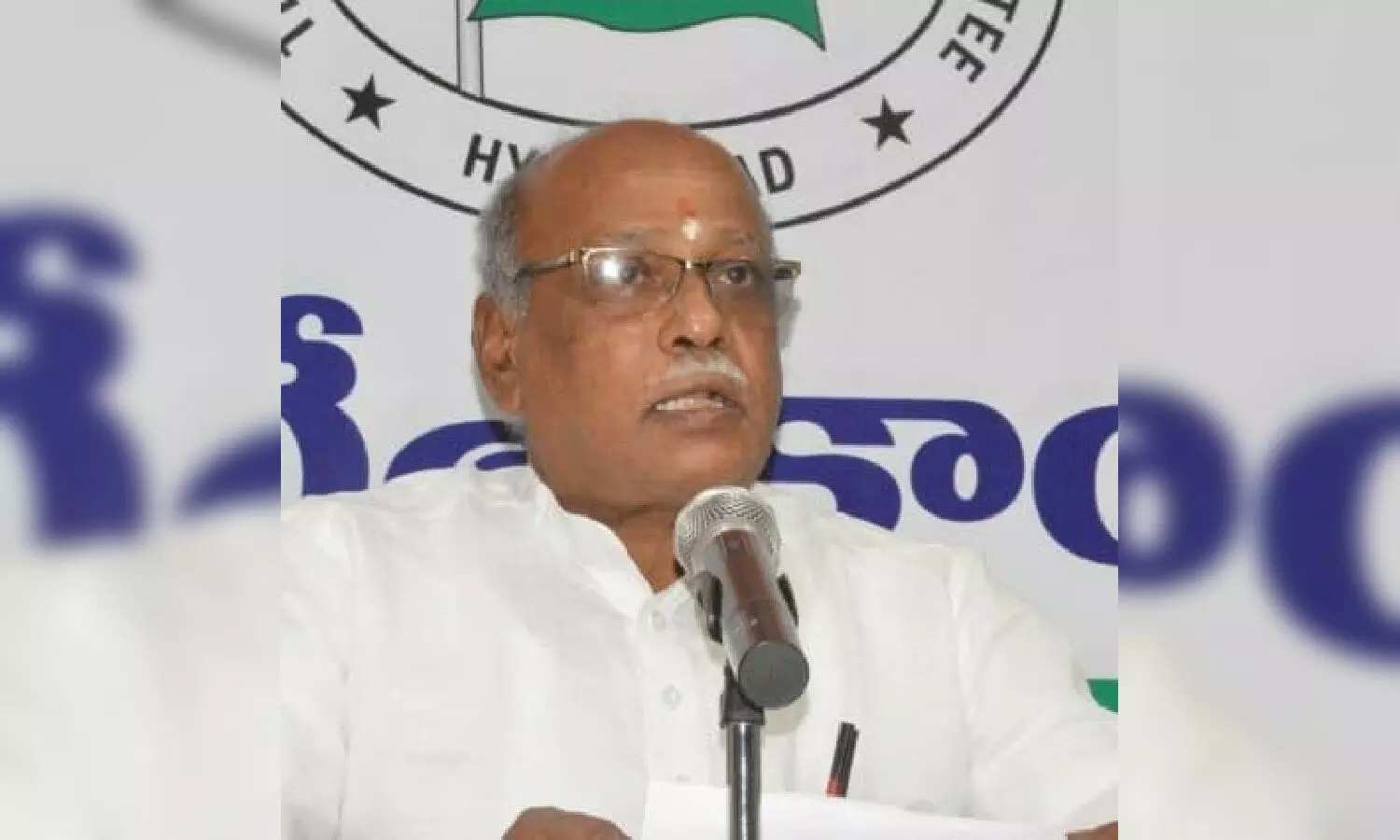BC Commission chief Niranjan calls for immediate legal action against 50% cap to secure BC quota
Niranjan’s appeal for a judicial re-examination comes in the context of recent remarks by the Chief Justice of India, Justice BR Gavai, in Amaravati, Andhra Pradesh.
By Newsmeter Network
Hyderabad/Amaravati: The hopes of Backward Classes (BCs) in Telangana for a 42 per cent reservation in local body elections have been severely set back by the persistent application of the Supreme Court’s 50 per cent reservation ceiling, prompting the Chairman of the BC Commission, G Niranjan, to call for an immediate legal challenge.
Niranjan described the situation as ‘suicidal,’ stating that after raising expectations and making intense efforts, the decision to limit total reservations below 50 per cent has ‘dashed the hopes of BCs.’
He argued that legal arguments against the enhanced quota rely solely on an outdated judicial precedent while ignoring the State’s extensive data on backwardness.
Justice BR Gavai remarks in Amaravati
Niranjan’s appeal for a judicial re-examination comes in the context of recent remarks by the Chief Justice of India, Justice BR Gavai, in Amaravati, Andhra Pradesh.
Speaking last Sunday at the ‘India and the Living Indian Constitution at 75 Years’ programme, CJI Gavai emphasised that the Constitution of India is not a static document but one that evolves with changing times.
Justice Gavai’s key points in Amaravati:
- Article 368 (misquoted in the original statement as Article 308, which deals with Public Services) provides the scope for amendments in accordance with changing circumstances and societal needs.
- He cited Dr BR Ambedkar’s vision for the Constitution as ‘organic, evolving and state-of-the-art,’ and that Parliament makes constitutional amendments to address social and economic challenges.
- The CJI also reiterated his long-held view that the ‘creamy layer’ concept, which excludes the affluent from reservation benefits, should be applied to reservations for Scheduled Castes (SCs) as well, to ensure benefits reach the most disadvantaged within the community.
- Niranjan stated that the CJI’s comments should ‘open the eyes’ of those arguing in the courts against the 42 per cent reservation by blindly relying on old judgments.
The main obstacle to the 42 per cent quota is the 2010 ruling by a five-judge Constitution Bench in the K Krishnamurthy vs. Union of India case, which affirmed that reservations must not exceed the 50 per cent limit in local bodies, a principle established earlier for public employment and education.
The BC Commission Chairman condemned the argument. He called it ‘unacceptable’ that the extensive and costly household survey conducted by the state to identify the backwardness of BCs is being ‘completely disregarded.’
He accused opponents of relying only on the five-judge bench judgment to obstruct the process, failing to account for contemporary social changes.
A Seven-Judge Bench
Lamenting the ‘severe injustice’ caused by the failure to place the BC Reservation Bills in the 9th Schedule (a legislative mechanism historically used to shield laws from judicial review), Niranjan presented a clear legal path forward.
He urged the government and legal representatives to:
- Challenge the judgment of the five-judge bench, which restricted reservations to 50%.
- Request the Supreme Court to constitute a seven-judge Constitution Bench to conduct a detailed hearing and ensure justice for Backward Classes.
The BC Commission Chairman emphasised that this critical stage is not the time to give up efforts to secure the enhanced quota.